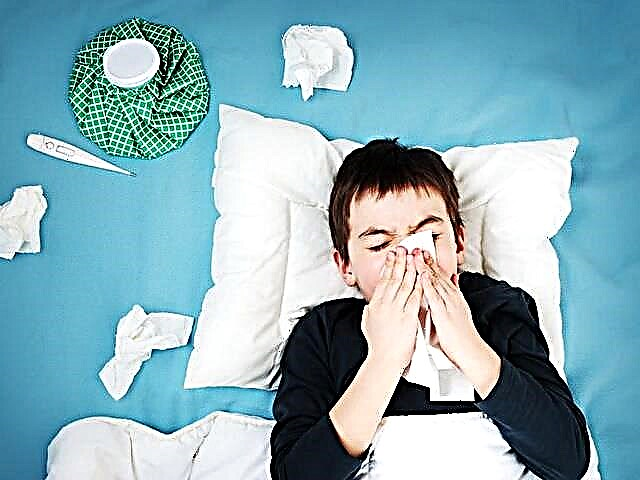Vaccinations are an effective means of protecting a young child from serious ailments that can cause irreparable harm to the baby's health. Diseases such as whooping cough, poliomyelitis, diphtheria, measles, tuberculosis require mandatory vaccination. Vaccination can sometimes cause unexpected complications, and this often scares parents. Adults must decide for themselves whether to vaccinate a child or not. If the answer is yes, then you need to learn a few rules to minimize harm and bring maximum benefit to the small body.

If you have been prescribed a vaccination in the children's clinic, you must definitely inform the doctor about the baby's condition. If the child has a poor appetite, if the baby is restlessly sleeping, has suffered any illness, there is a rash on the skin, etc. Any little thing should be known to a specialist, and only this guarantees that everything will pass without complications. Take this as seriously as possible, since only you are responsible for the health of your child. Below are all the points that young mothers will need to pay attention to when preparing a child for vaccination.
Vaccination calendar for children under 1 year old (in Russia) - what mothers need to know
Get a blood test
This is necessary in order to make sure that the child is in good health and there are no hidden diseases that can give complications. If doctors don't refer you for testing, find out why they don't. Ask a specialist in detail, what is the reason for this decision. Be sure to insist on a blood test, as it can show all abnormalities and prevent a negative reaction of the body to the vaccine. (on this topic: how is blood taken from a vein for analysis in an infant)
The kid shouldn't be sick
3-4 days before the introduction of the vaccine, it is necessary to stop attending kindergarten so that the child does not catch a cold or any other disease there. If the incubation period is several days, then on the day of vaccination, the disease can manifest itself and, in combination with the drug, give serious complications. On the eve of visiting a children's clinic, it is not recommended to walk with a child in crowded places. It is best to be at home these days.
If your baby has allergies
Many children have allergic reactions to a product that cause rashes and itching of the skin (about food allergies here). The doctor may prescribe antihistamines (tavegil, suprastin and others) a few days before vaccination, which will help eliminate symptoms. It is necessary to take the remedy on the day of vaccination and two days after it. The dosage is prescribed by a specialist depending on the nature of the allergy, weight and age of the baby. You cannot take any medications on your own, as this is fraught with the health of your child. But to reduce the risk of allergies, the mother may start giving the baby an increased dose of calcium supplements a few days before vaccination.
Food before vaccination
It is categorically contraindicated to introduce new foods into the child's diet a few days before vaccination. This can lead to unpredictable body reactions and complications. In the case of breastfeeding, the mother must carefully monitor her nutrition. It is advisable to empty the baby's intestines before vaccination. To do this, check with your doctor to prescribe a mild laxative without side effects. Mom can do it on her own without medication using an enema (instructions on how to give an enema to a small child) or a glycerin candle. The day before, it is recommended to eat light foods from the following list:
- liquid porridge or soups;
- vegetables and fruits (allowed for HS);
- juices and compotes.
Food should be familiar to the baby and always fresh. It is not recommended to feed the child before the vaccination itself, but more fluid must be given to avoid dehydration.
Activities on the day of vaccination
In the clinic, try not to communicate with other children, as a viral infection can get to your child. It will be best if the baby and dad or grandmother are in the car or on the street, and you call them directly to the procedure itself. If, after the previous vaccinations, the child has a fever, then in the morning of the day of vaccination it is recommended to give the child an antipyretic agent - best of all for children "Nurofen". If she was normal, then the medicine can not be taken.
Make sure the nurse is doing the right thing before vaccinating. She should take the drug out of the refrigerator and use sterile gloves. Be sure to ask her about the observance of the rules for transporting and storing the vaccine, read carefully the instructions for its use. Ask about the side effects of the drug, possible complications and the first steps to take if they occur. You must be prepared for this. Bathing the baby on the day of vaccination is strictly prohibited.
Psychological preparation is an important point. A kid up to a year does not yet understand that he will be given an injection, but if he is already old enough (attending a preschool institution), then he needs to be psychologically adjusted to the injection. This way he will transfer it more easily.  The child often refuses to go to the clinic because he is afraid that it will hurt, perhaps he is afraid of doctors, etc., so he needs to be explained that it does not hurt at all. You can make an analogy with a mosquito bite and cheer him up with a story about how brave and strong the baby is. Promise to buy a toy after vaccination or take him for a walk in the park. It is advisable to plan walks a week after vaccination, when the baby's immunity is restored.
The child often refuses to go to the clinic because he is afraid that it will hurt, perhaps he is afraid of doctors, etc., so he needs to be explained that it does not hurt at all. You can make an analogy with a mosquito bite and cheer him up with a story about how brave and strong the baby is. Promise to buy a toy after vaccination or take him for a walk in the park. It is advisable to plan walks a week after vaccination, when the baby's immunity is restored.
Mom's actions after vaccination
In good weather, walk with the baby after vaccination for about an hour in the hospital area and observe his reaction. If your child's behavior is alarming, see a doctor immediately. Do not wet the injection site at home, as this may cause a reaction. Monitor your baby and in case of complications such as vomiting and high body temperature, call an ambulance or local doctor.
Take the vaccination process very seriously, as your child's health depends on it. Follow the recommendations above and the vaccination will definitely benefit your baby.
We also read:



